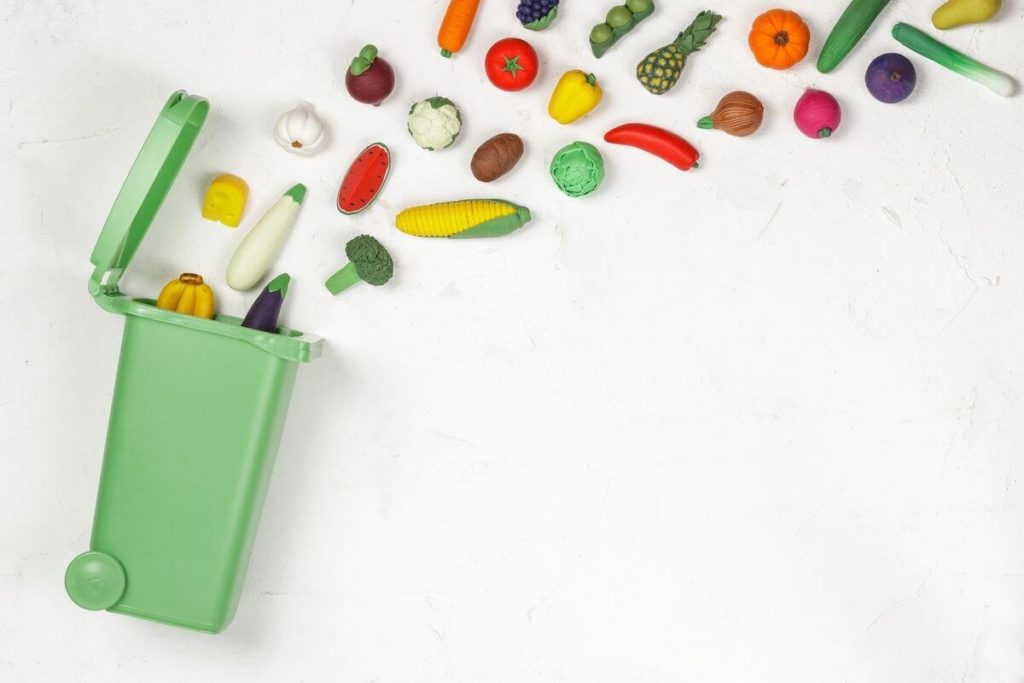
Avoid food waste with these 7 simple meal planning tips. Learn how long items last, what to use up first & ways to make food last longer.
This post contains affiliate links. Thank you for your support of Prep Dish!
How often do you grocery shop?
I'm a big fan of food shopping just once a week, for a couple of reasons. First, I make fewer impulse purchases. Second, it forces me to use up what's already in my pantry and freezer, rather than restocking my very favorite foods. These factors together mean a lower grocery bill and a less cluttered pantry, a win-win!
There is a certain challenge that comes with once-a-week shopping though. I love fresh produce and proteins, but I have to be a bit strategic so they don't go bad by the end of the week.
Over the years, I've become a bit of an expert on this and I pride myself on throwing away very little food. Here are a few of my best meal planning tips to avoid food waste in your own home:
1. Plan Your Proteins Based on Spoilage
Once you select your meals for the week, it's time to assign each meal to a specific day. Take a few minutes and think through which proteins you should use first, based on what will last longer in your fridge.
For example, our Prep Dish menus usually include 1 seafood meal and we always schedule this meal first on the weekly menu. Why? Because fish does not last long in the fridge. It's really best the day you buy it or the next day. An exception of course is frozen shrimp or fish, which gives you a lot more flexibility!
Use the below chart to determine how long you can generally expect your proteins to stay fresh in the fridge, as well as signs to look for when they're starting to spoil. Don't forget to check the “use-by” date too though! You never know how long your meat has been sitting in the grocery store before you bring it home, so that's an important step to make sure it's still fresh.
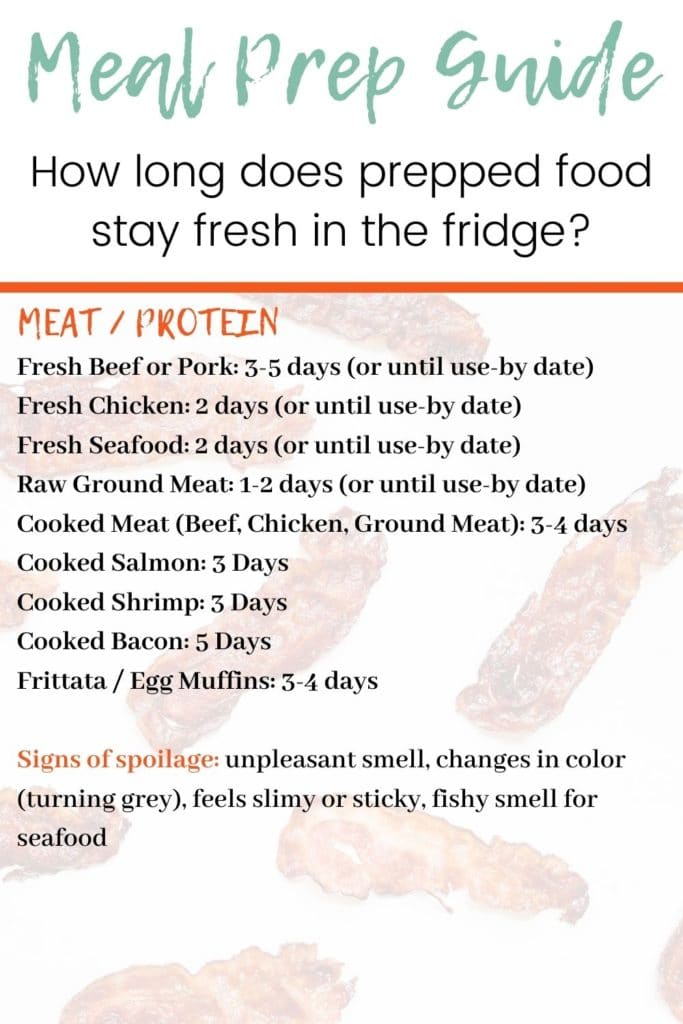
It's also important, of course, to understand how long your cooked proteins stay fresh in the fridge.
I'm a big fan of the “cook once, eat twice” strategy. In other words, I love cooking a big roast or a whole chicken and using it in different ways throughout the week. If you do this though, make sure not to let too many days go by before using the rest of the meat. You wouldn't want to cook a roast on Sunday and serve it again on Friday because it won't be as fresh.
2. Know When to Freeze Your Meat
If you feel overwhelmed by trying to use up all of your fresh meat before it spoils, try buying frozen meat. I personally love using ButcherBox so my freezer is always stocked with a great selection of high-quality meat. I just pull out what I need a couple of days before I plan to cook.
Alternatively, if you prefer purchasing your meat directly from the grocery store, consider sticking some in the freezer when you get home. That way you won't have to worry about it spoiling before you can use it.
3. Avoid Food Waste with Meatless Fridays
One more note on proteins – I know Meatless Monday is a popular thing to do, but if you grocery shop on the weekends, I recommend Meatless Fridays instead!
This lets you use up all of those fresh proteins earlier in the week while they're still fresh, and then turn to things like beans or a vegetarian pasta dish later in the week.
Looking for some vegetarian recipes to get you started? Try my Black Bean Chili Mac or my Southwest Buddha Bowls!
4. Prep (and Eat) Produce Strategically
Just like meat, your produce is only going to last so long once you bring it home. There are, however, things you can do to keep it fresh and avoid throwing anything away.
First, try to get a mix of items that expire quickly and those that last longer.
We go through a lot of fruit in my house with two little ones around. I love giving them fresh berries but they don't usually stay fresh long. I mix in longer-lasting fruits like apples and clementines to make sure we have fruit all week long. Frozen fruit is of course a great choice as well!
To give you a better understanding of which fruits and veggies last the longest, here is a chart of what you can expect:
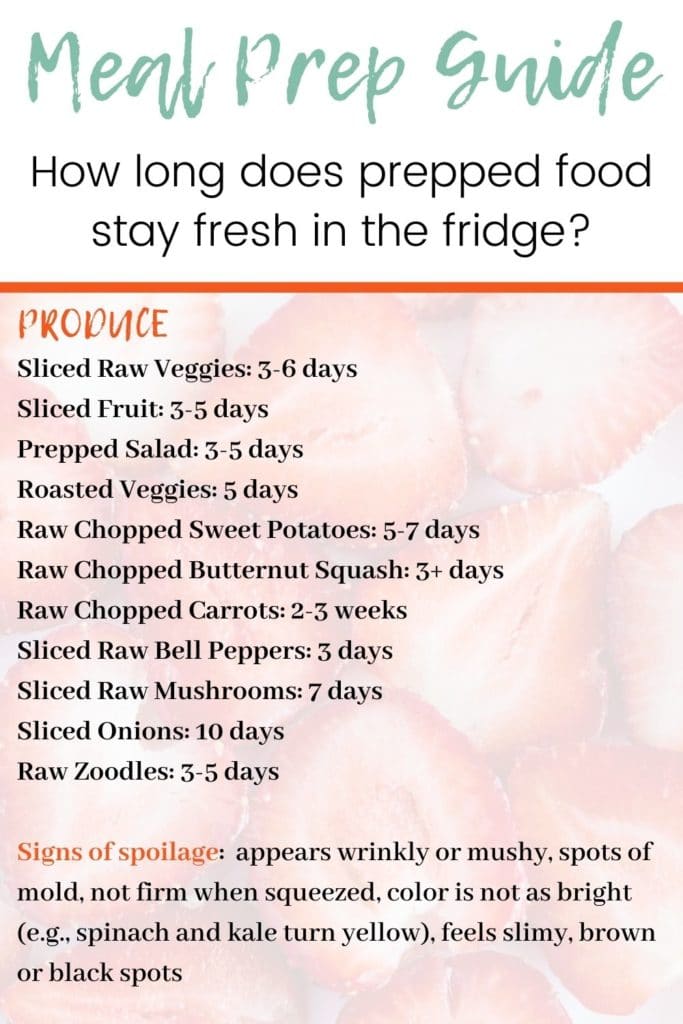
Another strategy is to not wash all of your produce at once. I know, I know, this goes against one of my number one meal prep tips, to prep your produce right when you get home from the grocery store. And you should totally do that…with a few exceptions.
If you'd like your berries to last longer, wait to wash and trim them until sooner before you plan to eat. In particular, wait to wash raspberries, blueberries and grapes until soon before you eat them to maximize shelf-life.
5. Prep Sides and Extras…But Not Too Early
If you love meal prep as much as I do, you're likely used to prepping grains, sauces and marinades on your prep day. But how soon is too soon? Can you prep a marinade for a dish you don't plan to make until the very end of the week?
Here's a visual of how long you can expect some common grains and “extras” to last:
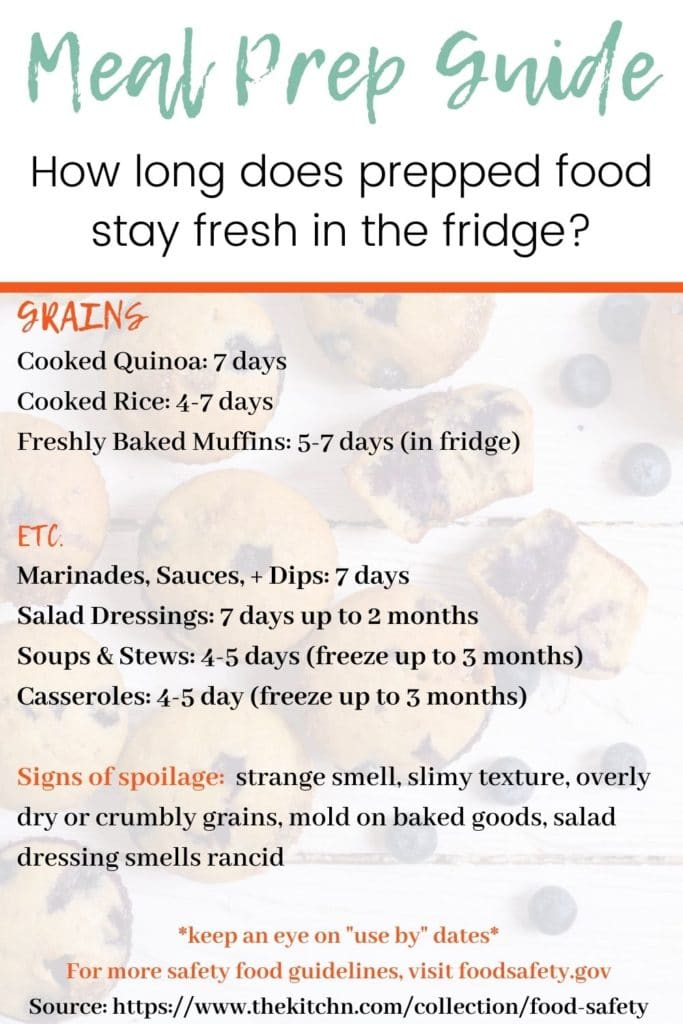
One note here – make sure to store salad dressings and marinades in the refrigerator and let them come to room temperature before you use them. This is especially important if they include raw garlic. Mixed with olive oil, raw garlic can cause botulism if not refrigerated!
6. Plan for Leftovers
Depending on the meal plan, our Prep Dish meal plans include 4-5 dinners per week.
Why not 7? For most families, I find that 4-5 planned dinner recipes is enough. Between leftovers and takeout/dining out, there are usually some nights when you don't need to cook a whole new recipe. Planning for these leftover nights is key if you want to avoid food waste!
One tip on using up leftovers – If you don't have enough leftover from any one meal to feed your family, that's okay! Lay out leftovers from three or four meals buffet-style and let each person choose what they want.
7. Check in Halfway Through the Week
Plans don't always work out how we envision them. Maybe you planned on a big pot of beef stew lasting two nights but everyone loved it and it's almost gone. Or maybe you thought you'd cook your chicken on Tuesday but you now have a bunch of leftovers to use up instead.
Make a habit of checking in halfway through the week to see how your meal plan is coming along. This way, you can either prioritize using up something that's going to go bad soon OR stick it in the freezer!
I love having a fully stocked freezer. If everyone is sick of lasagna, freeze individual slices and pull it out next month when it's fresh again. Of if you know you won't cook that chicken in time, stick it in the freezer and you'll have one less thing to buy for the next week's meal plan, always a plus!
Understanding how long both raw and cooked food lasts in the fridge can really help you keep your beautiful groceries out of the compost bin! I'd love to hear any other tips you have to avoid food waste and keep food fresh on our Facebook page or Instagram!
This page contains affiliate links. Thank you for your support of Prep Dish!

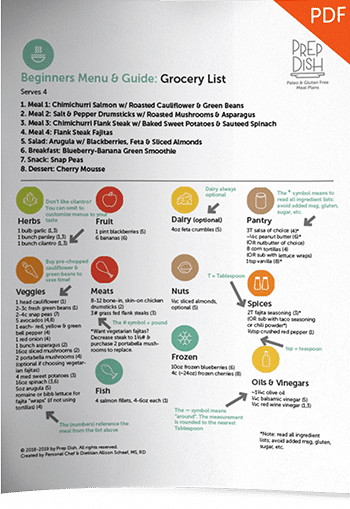
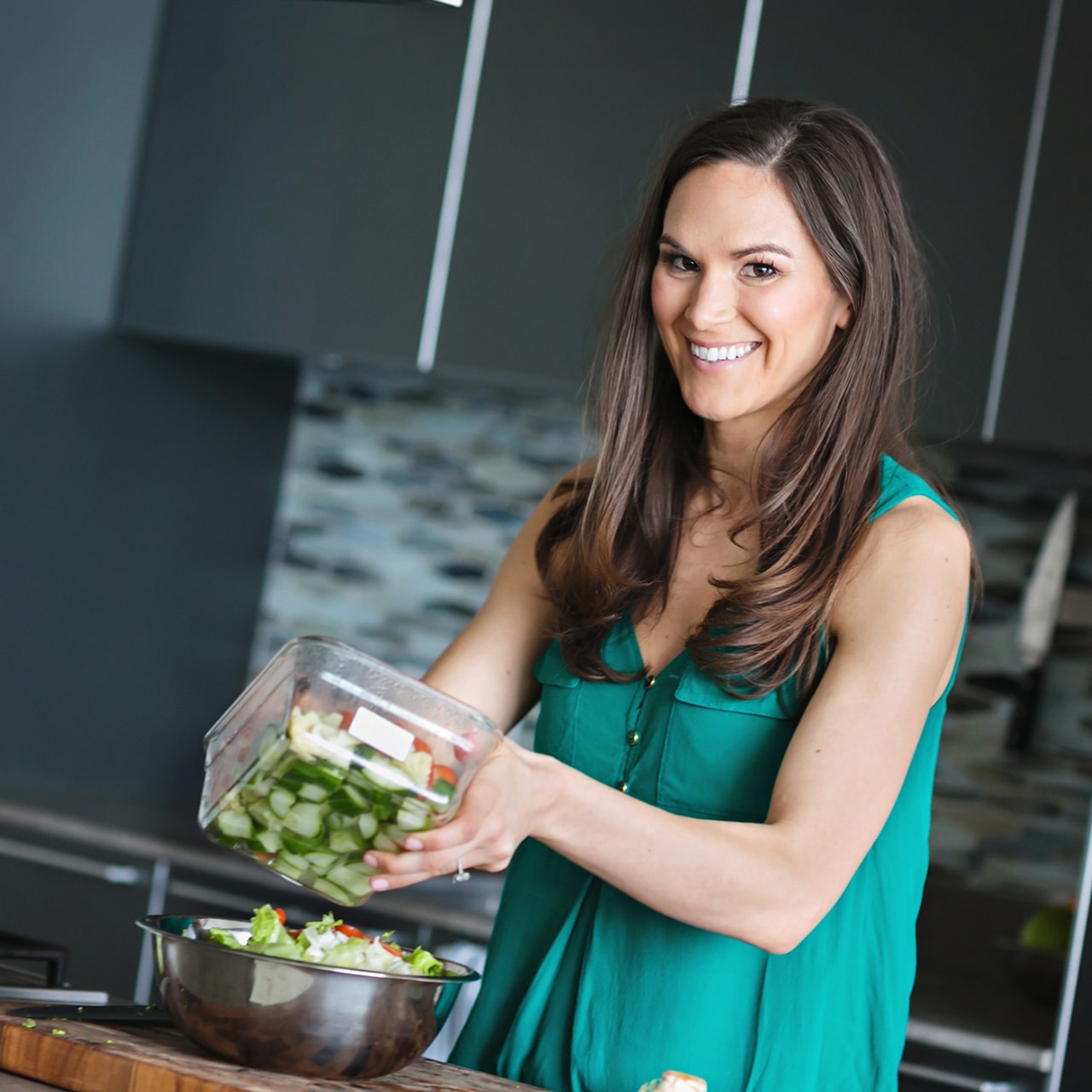
0 Comments